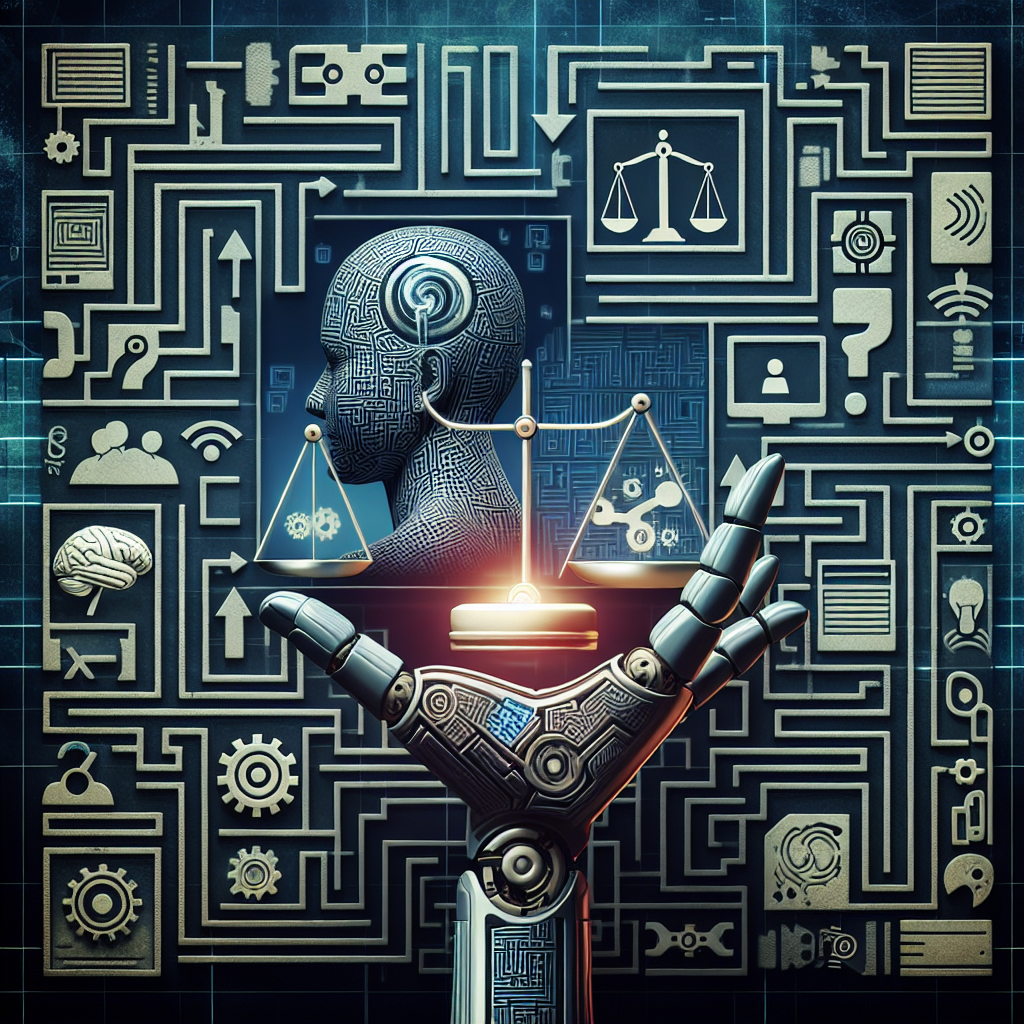Artificial Intelligence (AI) has become an integral part of our daily lives, from personalized recommendations on streaming services to facial recognition technology in our smartphones. In the realm of social media, AI plays a crucial role in content moderation, targeted advertising, and algorithmic recommendations. However, as AI continues to evolve and become more sophisticated, it raises a myriad of ethical dilemmas that must be carefully navigated to ensure the protection of users’ rights and well-being.
One of the most pressing ethical dilemmas surrounding AI in social media is the issue of privacy. AI algorithms are often used to analyze and process vast amounts of user data to deliver personalized experiences and targeted advertisements. However, the collection and use of this data raise concerns about user privacy and consent. Users may not be fully aware of the extent to which their data is being collected and used, leading to potential breaches of privacy and confidentiality.
Another ethical dilemma is the issue of bias in AI algorithms. AI systems are built on data, and if that data is biased or incomplete, it can lead to discriminatory outcomes. For example, AI algorithms used in social media platforms may inadvertently amplify existing biases and stereotypes, leading to the spread of harmful content and misinformation. It is crucial for developers and researchers to address these biases and ensure that AI algorithms are fair and unbiased.
Furthermore, the use of AI in content moderation presents its own set of ethical challenges. AI algorithms are often used to detect and remove harmful or inappropriate content, such as hate speech or graphic violence. However, the automation of content moderation can sometimes lead to errors and the censorship of legitimate speech. It is essential to strike a balance between protecting users from harmful content and preserving freedom of expression.
In addition, the use of AI in social media can also have implications for mental health and well-being. AI algorithms are designed to maximize user engagement and retention, which can lead to addictive behaviors and the spread of misinformation. For example, AI algorithms used in recommendation systems may prioritize sensationalist or polarizing content, leading to a more divisive online environment. It is crucial for social media platforms to prioritize the well-being of their users and promote healthy online interactions.
To navigate these ethical dilemmas, it is essential for stakeholders to engage in ongoing dialogue and collaboration. Developers, researchers, policymakers, and users must work together to establish clear guidelines and regulations for the ethical use of AI in social media. Transparency and accountability are key principles that should guide the development and deployment of AI algorithms in social media platforms.
Frequently Asked Questions (FAQs):
Q: How can users protect their privacy on social media platforms that use AI?
A: Users can protect their privacy by reviewing and adjusting their privacy settings, being mindful of the information they share online, and regularly updating their passwords and security settings. It is also essential to be aware of the data collection practices of social media platforms and to exercise caution when sharing personal information.
Q: How can developers ensure that AI algorithms are fair and unbiased?
A: Developers can ensure that AI algorithms are fair and unbiased by carefully selecting and preprocessing data, testing algorithms for biases, and incorporating fairness metrics into the design process. It is crucial for developers to be transparent about their data sources and methodologies and to regularly evaluate and update their algorithms to prevent bias.
Q: How can policymakers regulate the use of AI in social media?
A: Policymakers can regulate the use of AI in social media by implementing clear guidelines and regulations for data privacy, algorithmic transparency, and content moderation. It is essential for policymakers to work closely with stakeholders to develop comprehensive policies that protect users’ rights and promote ethical practices in AI development and deployment.
In conclusion, navigating the ethical dilemmas of AI in social media requires a collaborative and multi-stakeholder approach. By prioritizing transparency, accountability, and user well-being, we can harness the power of AI to create a more ethical and inclusive online environment. It is essential for developers, researchers, policymakers, and users to work together to address these ethical challenges and ensure that AI technologies are used responsibly and ethically.

